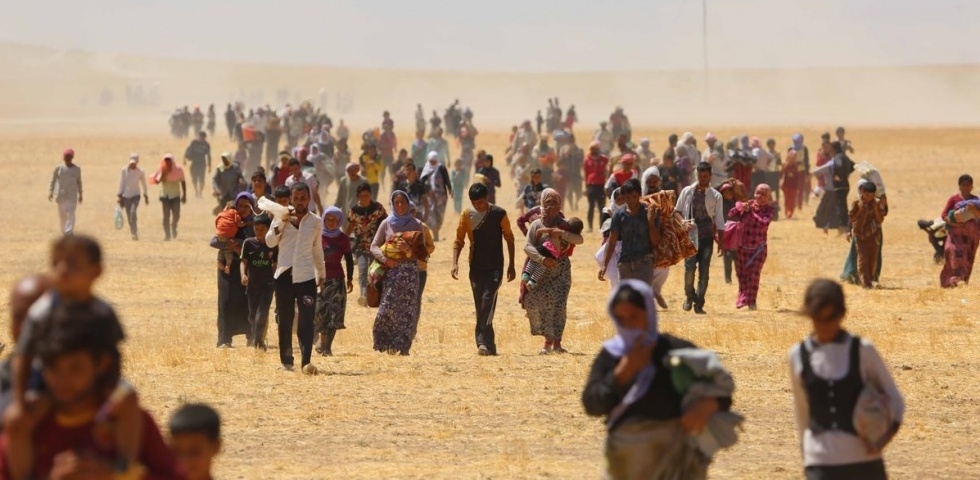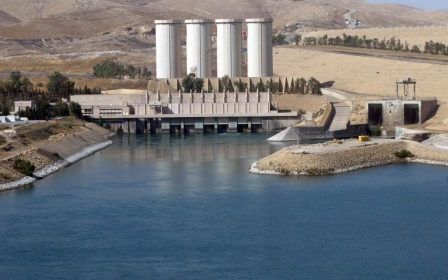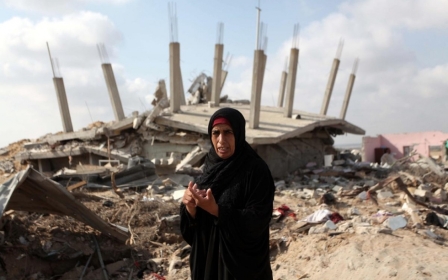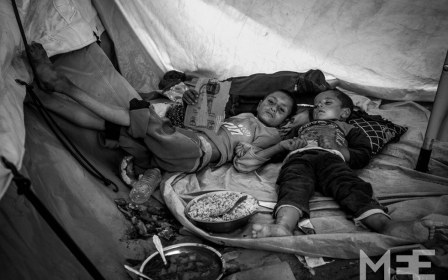What do Yazidis, Christians and Gazans have in common?

Fires are breaking out all over the Fertile Crescent. One is the ethnic cleansing of Christians and Yazidis by the self-styled Islamic State. Another is the war between Israel and Hamas in and around Gaza. Then there is Syria, where many more people are being killed but about whom we generally hear very little.
Where will be next? A third intifada in Palestine? The implosion of Jordan? A new Lebanese civil war?
All these conflicts and potential flash-points are in what were the predominantly Arabic-speaking provinces of the Ottoman Empire until the end of the First World War, when they were placed under British or French mandates. The process of state formation that flowed from the mandate system is acknowledged to have been flawed. The question is: what can be done about it today?
It is becoming almost fashionable to talk of redrawing boundaries and establishing new states. But this would involve new partitions, and these would invariably lead to ethnic cleansing and the creation of new, repressed minorities. With the possible exception of the creation of a Kurdish state in Iraqi Kurdistan, I do not believe this is the answer.
Indeed, even the case of Iraqi Kurdistan is far from clear cut. More Kurds would live outside the new Kurdish state than in it, and many of the areas in what would probably become known as "Greater Kurdistan" would have substantial non-Kurdish minorities, notably in eastern Syria. Moreover, Iraqi Kurdistan risks being overrun at the moment with refugees from the Islamic State, many of whom are not Kurdish.
If those refugees are not able to return home in a reasonable time, any Kurdish state would come into being with a substantial non-Kurdish minority.
Then there would be the usual issues to be settled whenever a new state is born through secession from a larger entity: disputes over territory and boundaries, and the effect on existing social, political and economic structures.
The creation of Israel involved its secession from the rest of Palestine. It necessitated war and left gaping wounds that are still unhealed. This example is living proof that such issues are not easily resolved. A map of Iraqi Kurdistan’s official border with the rest of Iraq shows a frontier that would be far from neat.
So let’s resist the temptation to indulge in that old Western game of drawing lines on maps, hatching enclaves designed for different peoples in bright, contrasting colours, and then expecting those peoples to oblige by moving neatly into them.
Instead of dreaming of redrawn boundaries, the aim should be to promote internal self-determination whenever possible: the negotiation of federalism and autonomy within the existing state units when this is needed to take account of divided populations.
The problems of the region are interlinked. The beating of a butterfly’s wings in Najaf or Hama can be the ultimate cause of a hurricane in Beirut or Baghdad. We need to re-examine our own attitudes accordingly.
We should ask ourselves questions like: if you sympathise with the plight of the Christians and Yazidis in the Islamic State, do you also sympathise with the people of Gaza (and of Palestine generally)? If not, why not?
The converse applies, equally: if you support the rights of the Palestinians, should you not also support those of people oppressed by the Islamic State or the government of Bashar al-Assad?
The failure to hold regional actors to account by distinguishing between good guys and bad guys (or "our bastard" and "their bastard") has inflamed sectarian and other divisions for decades.
Many Sunni Muslims note the willingness of Western governments to come to the support of minorities oppressed by Sunnis, but observe a deafening silence or merely the utterance of mealy-mouthed platitudes when a Sunni majority is oppressed. Syria and Israel’s occupation regime in the Palestinian territories it seized in 1967 are cases in point. There could be no greater driving force for hostility to the West and Sunni religious militancy.
Regional actors must therefore no longer be afforded preferential treatment on the basis of expediency, ideology or quasi-tribal solidarity with co-religionists and kith and kin, but be subject to identical standards contained in the principles of human rights, international humanitarian law and international law generally.
The European Union member countries and the United States should bring pressure on governments in Syria, Iraq, Israel and the other states in the region without any distinction to abide by international law. This is not only in the interests of the region but in the interests of those outside the region too.
There is also one major regional problem that could be solved by recognising the rights of all parties in international law and involving all states in the region.
The Arab League Peace Plan of 2002 is based on mutual recognition of the rights of Israel and its neighbours in international law, and could lead to a peace treaty signed by all members of the Arab League (and endorsed by the Islamic Conference). It could defuse the single most toxic source of strife in the region.
All that is needed is a fresh attitude and the political will.
- John McHugo is the author of Syria: From the Great War to Civil War and A Concise History of the Arabs
The views expressed in this article belong to the author and do not necessarily reflect the editorial policy of Middle East Eye.
Photo credit: Yazidi refugees flee an assault by Islamic State fighters in Iraq (AA)
New MEE newsletter: Jerusalem Dispatch
Sign up to get the latest insights and analysis on Israel-Palestine, alongside Turkey Unpacked and other MEE newsletters
Middle East Eye delivers independent and unrivalled coverage and analysis of the Middle East, North Africa and beyond. To learn more about republishing this content and the associated fees, please fill out this form. More about MEE can be found here.





